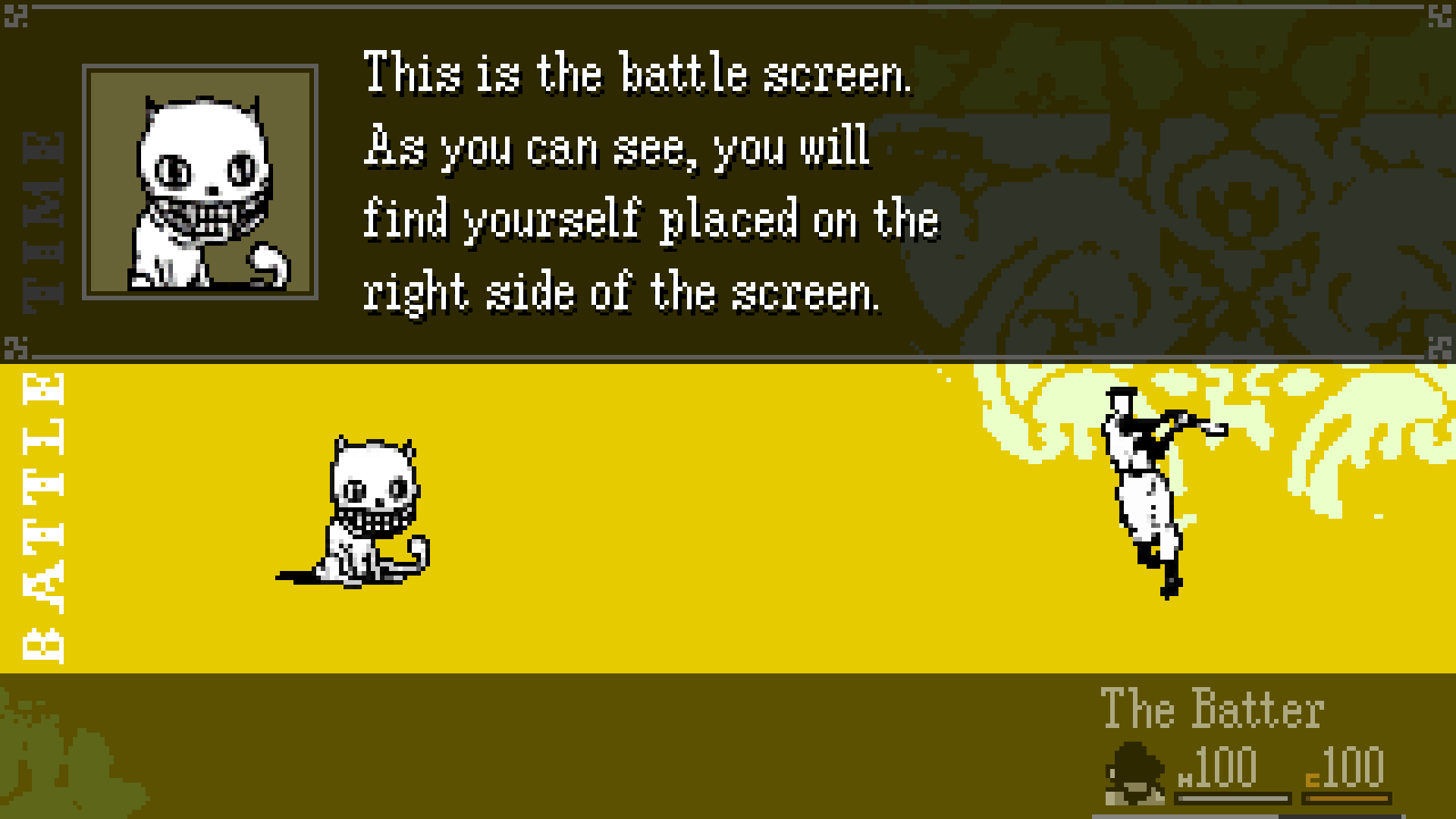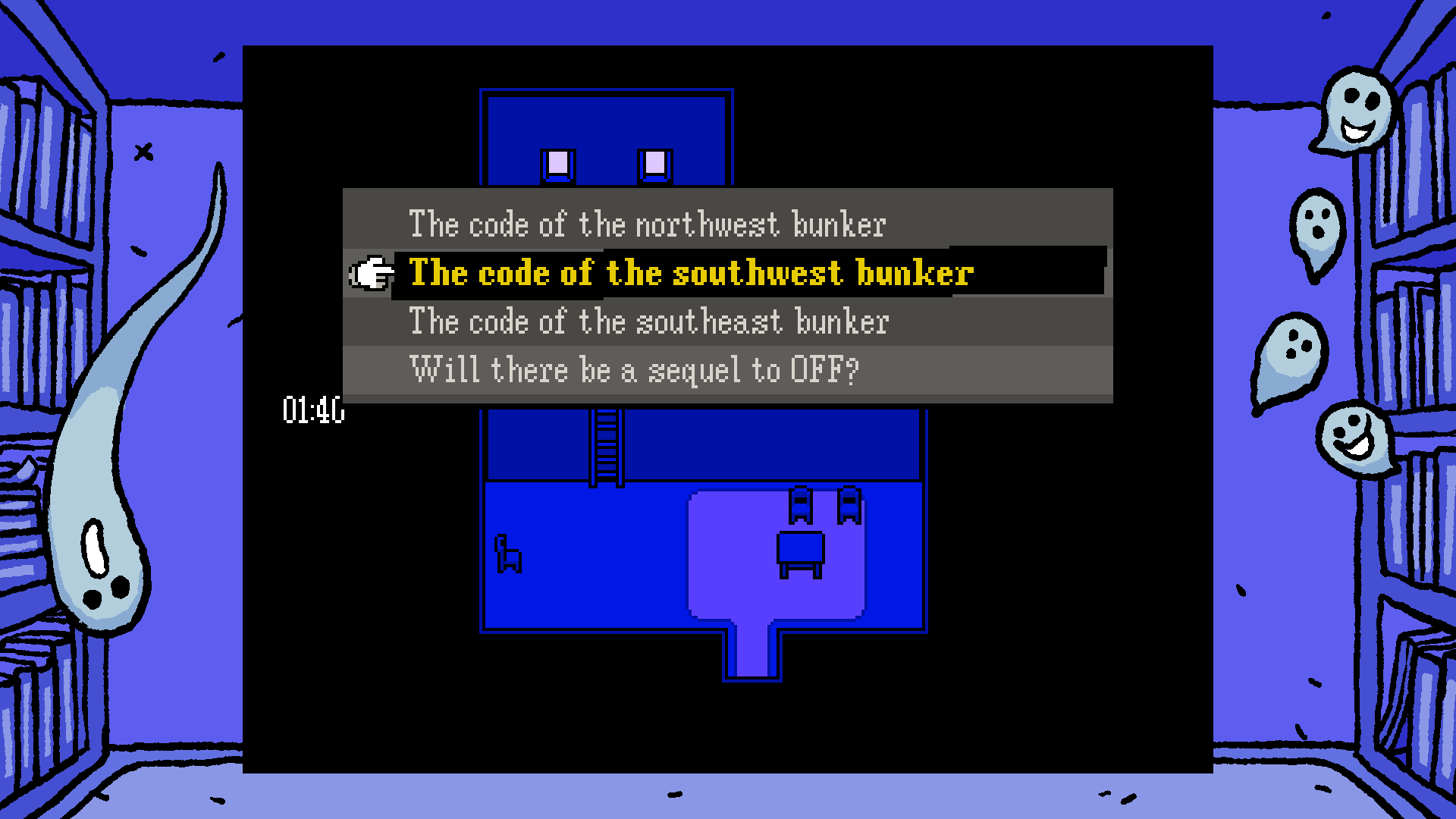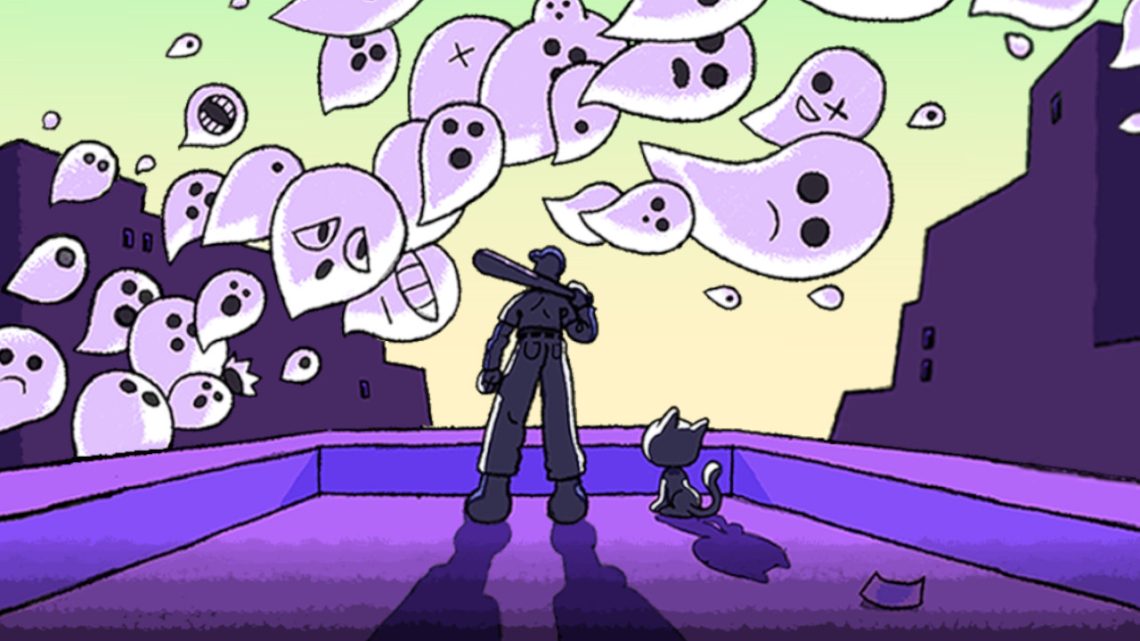After having the chance to play OFF, which if you haven’t yet you should check out the review I wrote about it. Especially those who are fans of old school classic JRPG’s it is worth checking out! Additionally, we’ve had the opportunity to ask the creator, Mortis Ghost, some questions about the game and its inspirations.
Robert Andalon: What was the inspiration for the design of the enemies and guardians? What was the inspiration for Von Gacy?
Mortis Ghost: My inspirations are numerous and diverse. I’ve always enjoyed drawing creatures and monstrous things. The Heaven Smiles from Killer 7 had a big impact on me, and are certainly among the most important elements that influenced my subconscious when designing the monsters in OFF. Tetsuo’s final transformation in Akira is also probably fundamental to the design of the secretaries. Regarding the Von Gacy characters specifically, I don’t have any specific memories, sorry!

RA: To me the lore for the primary elements seemed pretty well thought out, how was that created? I also liked how it was conveyed with old text book photos.
MG: Ahaha, that’s nice! I wanted to take the concept of the four classic RPG elements, but twist them to make them more bizarre and awkward. I thought about which materials were the most bizarre, yet at the same time the most common in our world. As for the presentation illustrations, they were taken from old encyclopedias.
RA: What do you think OFF inspired in other titles like Undertale? How comparable are the two games?
MG: I’m obviously flattered, it’s incredible!! I never would have thought that my game would be so successful that it would itself be an influence for other games, and even less games as incredible and popular as these. I think we can make a small link between OFF and Undertale, because they are two fairly narrative games, which share certain influences, with universes that are intended to be very original. However, it seems to me that Undertale carries a much more positive and enthusiastic message than OFF, which is a rather nihilistic game. I don’t disavow my game at all, but with the passage of time, I think that Toby Fox was right.
RA: Seeing that the original release of this game and the remaster are so far apart, what were the challenges getting it to more recent platforms?
MG: Most of the challenges were technical things, and had to be solved by the development team, not by me! My role mainly consisted of proposing or validating all the small changes made to the game. Our goal was to be as close as possible to the original game, so as not to betray the community, while making the experience a little more polished and comfortable. I think the only part that made me sweat a bit was the development of the new bosses. I wanted them to bring something new to the experience, while remaining completely in the original tone. It wasn’t necessarily easy to immerse myself in the artistic vision I had seventeen years ago!

RA: I really like the choice of being able to choose between two endings. Which is the true ending and why?
MG: The real ending is the one called “True Ending” (laughs). Beware, this is a huge spoiler!! It’s the one where the batter kills the Judge and completes his mission. It’s the real ending because it concludes the game in the most obvious way, and gives meaning to the title.
RA: I haven’t played the original. I feel like this version of the game holds up, especially the battle system. Was there anything you had to change from the original in terms of quality of life or balance?
MG: We changed quite a few small things. The combat system is the most important part; it’s much more fluid and comfortable than the original. It was a huge undertaking for the team! The main menu has also been completely redesigned, along with several interface and gameplay details, such as a hint system to help with progression. To be honest, without disavowing the original, you can really feel when playing it that it’s an amateur game made almost by myself. I’m delighted that the new version allows both old and new players to enjoy the game’s atmosphere without stumbling over the many small elements that sometimes made progression a bit laborious.
RA: I was surprised to hear that this game was originally developed using RPG Maker. Was it used again to tweak the remaster? If not, why?
MG: We changed the engine for the new version. I love RPG Maker 2003, which is the version that was used for the original game, but it’s an engine that has very obvious limitations. There’s simply no programming language; everything is done using buttons and menus! It’s incredibly accessible and fun for people (like me) who have never written any code in their lives, but it severely limits what’s possible compared to a normal game engine. We wouldn’t have been able to do what we wanted just by staying with RPG Maker.

RA: Like the game itself asks…will there be a sequel to OFF? Are there any plans for a future title that you could share with us?
MG: There will likely never be a sequel to OFF. The game stands on its own, and that’s something my then-collaborator Alias Conrad Coldwood (who composed the original soundtrack) and I agreed long ago. I don’t want to go back on that statement. However, I’m currently working on a new game, set in a different universe and with different characters. I won’t say too much, as we have a lot of work left, but it’s once again a Japanese-inspired RPG with a convoluted storyline.
That concludes the Interview. As this wasn’t done in person I would like to say thank you to Mortis Ghost for being so open to answering all of the questions. I do appreciate the insights and thoughts about how OFF was brought to modern platforms. Regarding the last question, Not everything needs a sequel, for OFF this is one of those cases. I look forward to Mortis Ghost’s next JRPG venture.









